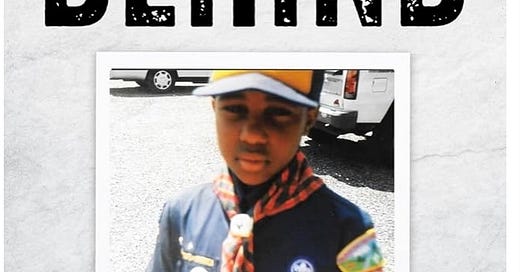As a contributor to the New York Post and as the man behind Wrong Speak Publishing, Adam Coleman had been in my sight for some time as an announcer of unwelcome messages. But the first time the particular character of his voice struck me seriously was when he shared his perspective on a series of scream shots from desperately angry young adults on the internet. While it is the custom these days to pair rage with rage, and to perfectly mirror disapproval from perceived political opponents, or, even better, to outdo the hatred by a notch or two, Coleman said something different. He verbalized the hurt hiding behind those faces pumped up with rage and aggression. With his merciful and generous eye, he broke through our addiction to binary divisions and brought matters down to the lowest common denominator, the sole level that counts, in the end, that of our humanity. It struck me as well - and I say this as a non-Christian - that Coleman is a Christian. Not of the kind apparently so popular these days, that considers faith as the latest prop to gratify the narcissist’s quest for popular acclaim, but of the real kind, that encapsulates mercy in its core. The Children We Left Behind, however, is an unmerciful read.
The book confronts us with the suffering of the abandoned child, starting with Coleman’s recounting of his traumas at the absent hands of his own father. The listing of all the nuances of rejection and loneliness experienced by the author as a child has a powerful impact on this reader, at least. I cried and had to lay the book aside several times to digest. This is no coincidence, of course, as the author has wished to open our eyes for the plight of the voiceless, before addressing wider consequences and solutions. I’m still in awe at his courage for going through the pain that innocent child suffered, and laying it all out for us to see. I believe that is the first lessons he has to offer.
In chapter after chapter, Coleman lays out aspects of the problem, such as the complicity of silence, the myth of the single mother, the mechanisms behind the imitation of deficient examples, and the choices we have in improving the lot of children, or of a single child. The answer might be just about as unspectacular as it is unpopular: adults have to accept their responsibility. The alternative is the perpetual motion machine of suffering, whereby abuse begets abuse, forever after. A first step towards changing anything may well come with intimate awareness of the pain we inflict by our laziness.
One of the most chilling chapters takes us to the time he was compelled to spend at a mental institution for children. Coleman makes painfully clear how - even if a solution for dramatic cases of (self-)harm - the internment is perceived as punishment, and that the urge to get of there as soon as possible induces the children to pretend they are fine, rendering any hope for real improvement, let alone treatment, vain. But Coleman’s book is not just a personal testimony. He seeks to identify the social and cultural mechanisms which allow for his suffering to be multiplied by the millions. I could argue with him here about what I see differently, but that might seem an attempt to gloss over the importance of the discussion he hopefully initiates at a much larger scale than has been the case. And that discussion should be broached in full awareness of the damage we tacitly and cruelly allow to be inflicted on the most innocent and defenseless members of society.
I will make one exception, however, because it may stimulate the reader - perhaps more ready to deal with the macrocosm of the political world than with the microcosm of intimacy and frailty - to engage with this argument that much more. At several stages of my reading of this book, I recalled The Origins of War in Child Abuse. It is hard to imagine that patterns of child rearing would not have massive effects on society. More books have been written on the time bomb that our failure to raise our children in a healthy environment amounts to, such as Haidt’s Coddling of the American Mind and The Anxious Generation. But there’s a perspective that we tend to forget when we look at charts and statistics, and use wide abstractions to satisfy our wish to grasp the world. But all those grandiose terms, such as morality, Justice, and mastering trauma do not have the slightest significance if we fail to apply them at the primary level. The personal appeal Adam Coleman makes on us should not go unheard.



